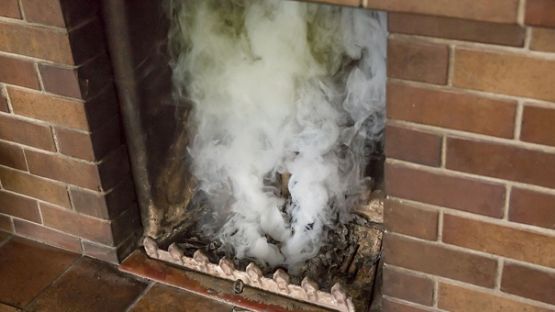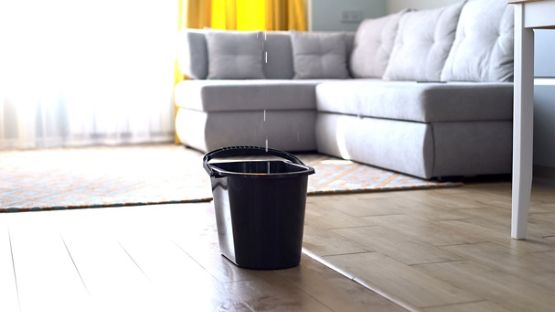Renters' insurance or tenant insurance is important for any person renting a property or unit.
Tenant insurance, also known as renters insurance, is a type of insurance policy designed specifically for people who rent their homes, whether it's an apartment, house or condo. Unlike home insurance, which covers the building itself, tenant insurance protects the renter's personal belongings and provides liability coverage.
Key takeaways
- Tenant insurance covers the contents of your rental home such as furniture, electronics and clothing against risks like theft, fire and certain water damages. Without it, you’d need to replace these items out of pocket.
- You can enhance your coverage with add-ons like high-value items protection, water damage coverage, identity theft protection and earthquake or flood coverage, depending on your needs.
- Tenant insurance typically doesn’t cover high-value items beyond standard limits, animal infestations, building damage or roommates’ belongings. Always check your policy details and consider additional coverage if needed.
Why renters' insurance is important
It's a common assumption that because landlords already have insurance for the property, renters don't need to have their own, but you shouldn't underestimate the importance of renters' insurance. Your landlord's insurance will generally only protect the property as a whole and not your personal belongings.
Anything that occurs in your own unit will be your responsibility, which means that if something unfortunate happens within your rented property (whether something is stolen or someone gets into an accident) you won't be protected by your landlord's insurance. Instead, you could be held liable for any damages, which could mean having to pay out of pocket for expenses like repairs, injury or legal expenses.
Without tenant insurance, you would have to pay out of pocket for any damages or losses, which could be financially devastating. Knowing that you're protected in case of unexpected events can also provide peace of mind.
What does tenant insurance cover?
Purchasing tenant insurance is not required by law in any Canadian province but some leases may make renters insurance mandatory. Regardless of whether you're compelled to get one or not, a tenant insurance policy covers you and your belongings.
So what exactly does renters insurance cover? It typically covers a few key areas to protect renters from various risks and losses. Here’s a breakdown of what’s usually included:
Personal belongings
Replacing items like your bike, bed or computer can cost a lot, especially if you need to replace everything you own at the same time. While sentimental value cannot be replaced, tenant insurance can help protect your personal property, such as furniture, electronics and clothing, against risks like theft, fire and certain types of water damage (more on water damage exclusions below).
Liability coverage
Liability coverage is another important aspect of renters insurance policies.
Basically, it means you’re protected if you’re held responsible for accidental or unintentional injury to others or damage to their property. For example, if a visitor slips and falls in your rented apartment and you are deemed responsible, liability coverage may help cover their medical expenses and any legal costs that arise.
Overall, personal liability insurance provides renters with financial protection by helping to cover the costs associated with accidents or injuries that occur on their rental property.
Relocation costs and additional living expenses
If your rental unit becomes uninhabitable due to a covered event (such as a fire or covered water damage), tenant insurance usually includes additional living expenses coverage. This includes costs like hotel bills, restaurant meals and other increased or additional living expenses incurred while your home is being repaired.
Optional extras for your tenant insurance policy:
As we've seen, a standard renters insurance policy includes:
- Personal belongings
- Liability coverage
- Additional living expenses
However, when shopping for policies, you may find optional coverage add-ons that are worth considering.
For example, tenant insurance coverage may be extended to include:
- High-value items coverage: If you own expensive items like jewellery, art or collectibles, standard coverage limits may not be sufficient. Scheduling these items under a separate endorsement can provide additional protection.
- Water damage coverage: Not all water damage is covered under a standard tenant insurance policy. Consider adding water damage coverage to protect against specific scenarios, such as overland water or sewer backups.
- Identity recovery: Identity theft is a growing concern. Some tenant insurance policies offer cybersecurity or identity theft protection as an add-on, helping you recover if your personal information is stolen.
- Earthquake and flood coverage: These natural disasters are typically excluded from standard tenant insurance policies. If you live in an area prone to earthquakes or overland flooding, you may want to add this coverage to your policy.
What tenant insurance may not cover
While most tenant insurance policies offer broad protection for renters, it's important to understand your policy’s limitations. Not all potential risks and damages are covered under a standard policy. Here are some common exclusions you should be aware of to ensure you're adequately protected:
Certain high-value items
Standard policies have coverage limits for high-value items such as jewellery, fine art or collectibles. If you’ve bought or inherited some fine art or have any fine jewellery or watches, you may need to purchase coverage add-ons.
Animal infestations
Most tenant insurance policies do not cover damage caused by pests like bedbugs, rodents or insects. Regular maintenance and pest control are essential to mitigate these risks. It’s also worth taking the time to ask about the building's history.
Building damage
Tenant insurance does not usually cover the structure of the building, though there may be coverage under the liability portion depending on what exactly occurred. This is usually the landlord's responsibility under their own landlord insurance policy. This also applies to any appliances (stove, fridge, etc.) that they supplied.
Roommate’s belongings
Tenant insurance typically covers only the policyholder’s belongings and liability. If you have roommates, they should get their own tenant insurance policy.
Pro-tip: Always check with your insurance representative to understand exactly what your policy does and does not cover.
Wrapping Up: Take Time to Understand Your Policy
Renters' insurance plans differ, and it's important to know what's included with your policy before you sign your contract. You may want to purchase extra coverage to ensure you cover all your bases. One add-on you may not have considered previously is coverage for cyber security, especially if you're dealing with technology at home or if you work remotely.
Check with your insurance representative about available plans and learn about what's covered, what's not, and what you can add on to build a renters' insurance policy that works for you.













